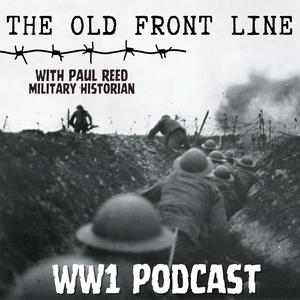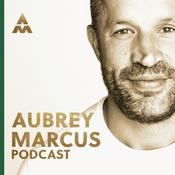279 episodes
- In this episode of the Old Front Line podcast, host Paul Reed is joined by military historians Charles Fair, Richard Hendry, and Dr. Tom Thorpe to delve into the often-overlooked history of the London Territorial Force during the Great War. The discussion begins with an exploration of the origins and purpose of the Territorial Force, established in 1908, which served primarily for home defense before the war. The historians highlight the unique characteristics of the London Regiment, which comprised numerous battalions, each with distinct identities tied to local communities, and how this diversity contributed to its prominence in the war effort.
As the conversation progresses, the historians discuss the evolution of the London Territorials throughout the war, noting how the composition of the units changed as conscription began and how the original local identities were diluted. They also touch on the social dynamics within the battalions, the challenges of equipment shortages, and the significant contributions of the London Territorials in various theatres of war, including the Western Front and Palestine. The episode concludes with insights into their upcoming book, "London Pride," which aims to provide a comprehensive study of the London Territorial Force's history and its impact on the Great War.
You can order the book here via the Publisher: London Pride The London Territorials in WW1
Main Image: Men of the 19th Battalion London Regiment digging trenches in England c.1915 (Old Front Line archives)
Sign up for the free podcast newsletter here: Old Front Line Bulletin.
You can order Old Front Line Merch via The Old Front Line Shop.
Got a question about this episode or any others? Drop your question into the Old Front Line Discord Server or email the podcast.
Send a text
Support the show - In this latest First World War Q&A episode we tackle some of the most intriguing and overlooked questions about life, strategy and survival on the Western Front and after the guns fell silent.
Why did the British Army so often attack on ground not of its own choosing, at places like Loos and the Somme? If British commanders could have picked the battlefield, where might they have fought instead, and why?
We then explore the everyday realities of the British Army by looking at the role of regimental cooks: were they safe behind the lines, or did they have to fight as front-line soldiers too? And if so what examples do we have of this?
Moving beyond the Armistice, we examine what happened when civilians returned to their shattered towns and villages after the Great War. Did governments help rebuild devastated communities, or was the burden carried by charities and local people? How were homes, farms and businesses reconstructed across the former battlefields of France and Belgium, and who actually paid for the enormous clean-up of the Western Front? We look at unexploded shells, wrecked trenches, barbed wire and battlefield debris, and ask whether German reparations really covered the cost.
Finally, we investigate one of the visual trademarks of First World War battlefields: blasted woodland reduced to splintered stumps. If forests offered little cover and tangled roots made digging trenches harder, why were woods and copses fought over so fiercely?
A deep dive into strategy, soldiers’ daily lives, post-war reconstruction and the scarred landscapes of the Western Front, this episode sheds new light on how the First World War was fought and how its aftermath reshaped Europe.
Main Image: 'This Place was Hooge' - Provisional housing at Hooge in c.1919/20 (Old Front Line archives)
Sign up for the free podcast newsletter here: Old Front Line Bulletin.
You can order Old Front Line Merch via The Old Front Line Shop.
Got a question about this episode or any others? Drop your question into the Old Front Line Discord Server or email the podcast.
Send us a text
Support the show - In this episode, we explore the four brutal wartime winters in Flanders during the First World War, focusing on the Western Front around Ypres from 1914 to 1918. Beginning with the establishment of the British front line at Ypres in late 1914, we examine how soldiers endured cold, mud, and constant danger during the Great War’s earliest winter, including the famous Christmas Truce of 1914.
Using firsthand accounts, battalion war diaries, and casualty records, we analyse how Christmas on the Western Front in Flanders changed as the war dragged on, and why later winters were very different from the early months of optimism. We also uncover compelling evidence of a lesser-known second Christmas Truce in the Canadian sector in December 1915.
The episode concludes with Christmas 1918, as civilians cautiously returned to the shattered city of Ypres in the aftermath of the First World War, reflecting on loss, survival, and the long road to recovery in Flanders.
Sign up for the free podcast newsletter here: Old Front Line Bulletin.
You can order Old Front Line Merch via The Old Front Line Shop.
Got a question about this episode or any others? Drop your question into the Old Front Line Discord Server or email the podcast.
Send us a text
Support the show - In this latest Questions & Answers episode, we tackle some intriguing, and often misunderstood, aspects of life and fighting on the Western Front during the First World War.
Who actually decided what a battle was called? Did the ordinary soldier know, at the time, which battle he was fighting in – or even when one battle had ended and another begun, during almost four years of near-continuous combat? We explore how battles were named, dated, and defined, and what that meant for the men experiencing the war on the ground.
We also examine the introduction of the policy that 10% of a battalion was held back during attacks, particularly on 1 July 1916, the First day of the Battle of the Somme. When did this practice begin? Was it standard throughout the war? And where were these men actually positioned? Was it in support trenches, reserve lines, or further back with transport and logistics?
For those who engage with the First World War through the landscape itself, we answer a listener’s thoughtful question about walking The Old Front Line at Ypres. Thinking about the surviving terrain, memorials, and traces of trench warfare, we recommend one particularly powerful walking route in the Ypres Salient that still tells the story of the war in a way that just maps and books sometimes cannot.
Finally, we address a sensitive but important topic: did British Army officers really receive more leave than their men? If so, how was this perceived by the ranks, and what impact did it have on morale within the British and Commonwealth armies?
Main image: British troops arriving on leave at Victoria Station, London. (IWM Q30515)
The Battles Nomenclature Committee Report 1919: Naval and Military Press website.
Sign up for the free podcast newsletter here: Old Front Line Bulletin.
You can order Old Front Line Merch via The Old Front Line Shop.
Got a question about this episode or any others? Drop your question into the Old Front Line Discord Server or email the podcast.
Send us a text
Support the show - In this special episode, Paul Reed discusses the Ypres League's mission to preserve the history of the Ypres Salient and the significance of Demarcation Stones that mark the furthest advance of German forces during the First World War in 1918. Roger Stewart and Dr Dominiek Dendooven share insights into the history, design, and restoration efforts of these stones, emphasizing the importance of community involvement and funding for their preservation. The New Ypres League aims to foster relationships between different communities and ensure that the legacy of the First World War continues to resonate with future generations.
The New Ypres League: Join The New Ypres League Here.
Support the Demarcation Stones Project: Pledge Support Here.
Sign up for the free podcast newsletter here: Old Front Line Bulletin.
You can order Old Front Line Merch via The Old Front Line Shop.
Got a question about this episode or any others? Drop your question into the Old Front Line Discord Server or email the podcast.
Send us a text
Support the show
More Education podcasts
Trending Education podcasts
About The Old Front Line
Walk the battlefields of the First World War with Military Historian, Paul Reed. In these podcasts, Paul brings together over 40 years of studying the Great War, from the stories of veterans he interviewed, to when he spent more than a decade living on the Old Front Line in the heart of the Somme battlefields.
Podcast websiteListen to The Old Front Line, Keep The Change and many other podcasts from around the world with the radio.net app

Get the free radio.net app
- Stations and podcasts to bookmark
- Stream via Wi-Fi or Bluetooth
- Supports Carplay & Android Auto
- Many other app features
Get the free radio.net app
- Stations and podcasts to bookmark
- Stream via Wi-Fi or Bluetooth
- Supports Carplay & Android Auto
- Many other app features


The Old Front Line
Scan code,
download the app,
start listening.
download the app,
start listening.







































